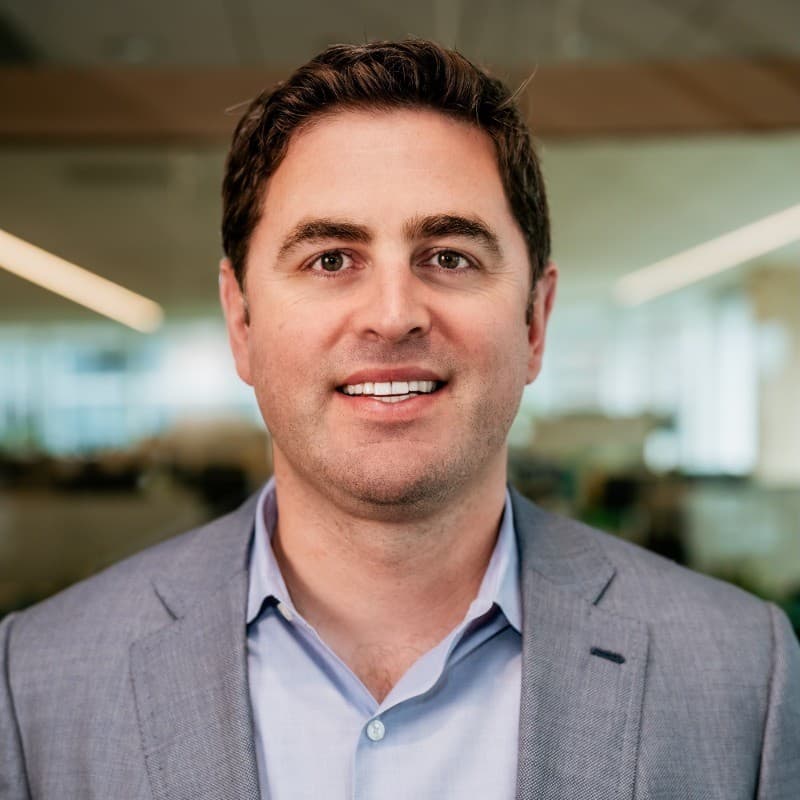Would your organization benefit from unlimited employees who perceive their environment, make decisions and execute tasks with minimal human intervention? As tech firms march innovation forward, many experts say this is a near-term reality thanks to AI agents.
Mick Costigan, VP of Salesforce Futures, is focused on the intersection of technology and the workplace, advising Salesforce leadership and customers about innovations of the future. He’s got a finger on the (digital) pulse of AI agents, which many tech developers say have the potential to redefine the way the world works.
“Everyone’s talking about agents, for good reason,” says Costigan.
From ‘speculation to innovation’
Costigan’s perspective aligns with broader industry trends. At HR Tech last September, industry icon Josh Bersin called agentic AI one of the biggest tech transformations of 2025. Workday, Oracle, IBM, Dayforce and other HR tech giants have announced agentic AI capabilities for their customers. Costigan says this innovation is to be expected at this stage, noting, “The topic has evolved from speculation to innovation.”
As autonomous AI agents gain traction, Costigan explains, these tools are evolving beyond basic automation, fundamentally transforming leadership, workforce dynamics and business operations. This raises an obvious question: How do agents fit into the HR space?
Agents can potentially improve the employee experience and support HR teams in tandem. As Kathleen Hogan, chief people officer at Microsoft, told HR Executive last year: “This really moves it from the notion that employees have to go to a portal to pull the data to a more proactive agent that is pulling the data for you, making recommendations, and pushing and nudging you to do things,” says Hogan.
While co-pilots—which for many HR teams still feel brand new—have emerged to assist users reactively, Costigan says AI agents differ by being proactive, capable of autonomously executing tasks and collaborating with other agents. He describes them as “additional digital labor,” providing businesses with a scalable supply of AI-driven workers.

Organizations are already integrating AI agents to streamline operations. For example, Costigan described talent advisory Adecco Group, which manages 300 million resumes annually and turned to agents to scale recruitment—AI now handles candidate engagement, resume reviews and job matching. Wiley, a platform for research and learning, leveraged AI agents to achieve a 50% reduction in onboarding time, and reported a 213% return on investment, according to Salesforce.
A futurist’s view of AI agents
The rise of AI agents will likely bring cultural shifts and new workplace norms. Costigan predicts the emergence of “agent chiefs of staff”—AI assistants that coordinate multiple agents to optimize efficiency and reduce confusion for the user.
Additionally, Costigan envisions employee reliance on personal AI agents for real-time insights, raising questions about workplace etiquette. He also foresees companies facing new frontiers as they balance efficiency with maintaining human connection and preventing over-reliance on AI agents.
AI’s role in performance management will also evolve, he predicts. Employees may bring their personal AI agents into projects, leading to new challenges in evaluation and accountability, says Costigan. He also thinks high-performing employees might develop proprietary AI agents based on their expertise, raising questions about intellectual property and ownership.
Agents could help round out skills-based workplaces and internal talent management programs. Artificial intelligence, including agents, requires a solid and rich base layer of data. Costigan notes that today’s HR information systems (HRIS) often lack comprehensive employee information. However, as AI agents interact with employees, they will develop a deeper understanding of people, skills and job functions—offering a more detailed and dynamic workforce picture.
As businesses embrace AI agents, Costigan emphasizes the importance of thoughtful integration and ethical AI leadership. The next frontier of work won’t just involve AI assisting humans—it will be about humans and AI working together in fundamentally new ways.
The post Meet your AI agent: The new ‘chief of staff’ for HR professionals? appeared first on HR Executive.